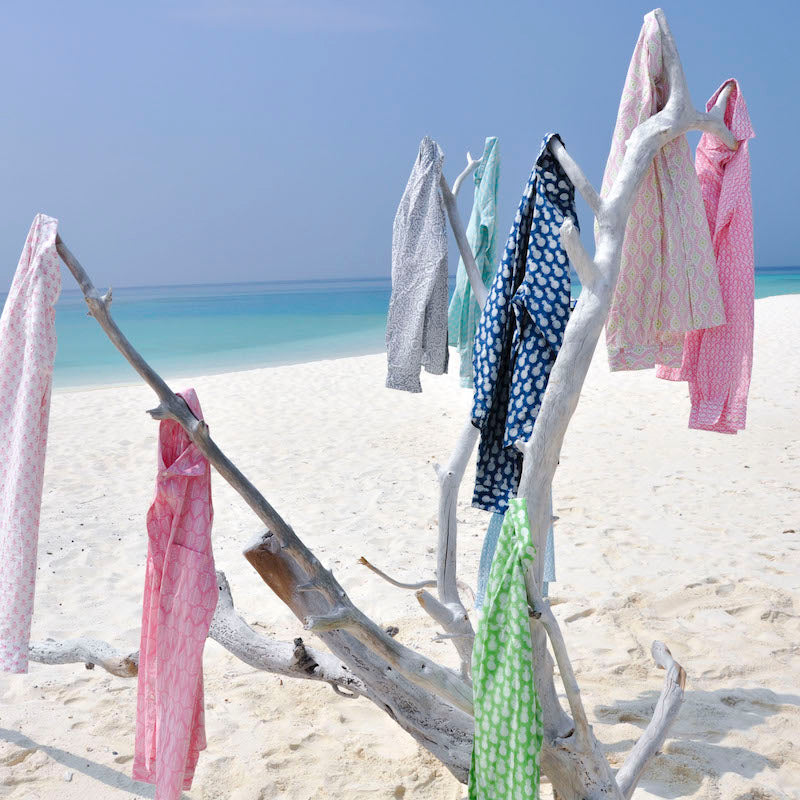
ABOUT US
Indigo Island is not just about shirts. It’s about passion, care and craft, woven into a unique concept. We combine the very best Indian textiles with original designs and high quality tailoring to create clothes that are stylish, relaxed and fun to wear.
Dedicated to quality
Our shirts are made from finely woven cotton cambric with an even 60-thread count warp and weft weave, giving them softness and an even grain.
The fabric falls beautifully… perfect for cool, comfortable summer clothing.
Each shirt is then hand cut and tailored, so that the patterns match across the plackets and pockets, giving them seamless quality.
The Indigo Island shirt has a contemporary tailored cut and cutaway collar. Single-needle stitching lends an elegant finish to the placket, pocket and yoke, while the sculpted hem, double-button barrel cuff and Japanese shell buttons complete the design.
how the idea was born
Indigo Island started out as a collaboration between two sisters, Torty and Lulu. Travelling in Europe with her boyfriend Asif in 2016, Torty was amazed at people’s reactions whenever he was out and about wearing one of his custom-made printed shirts - individual in design, casual and soft-cotton comfortable. They were one-offs, he explained, from back home in India… but the idea for Indigo Island took flight.
Over the past eight years our shirts have been made in dozens of unique designs, worn by thousands of happy customers, and literally travelled the world. Following Lulu’s retirement in 2023, Torty took over at the helm and will continue to steer it towards new horizons.
